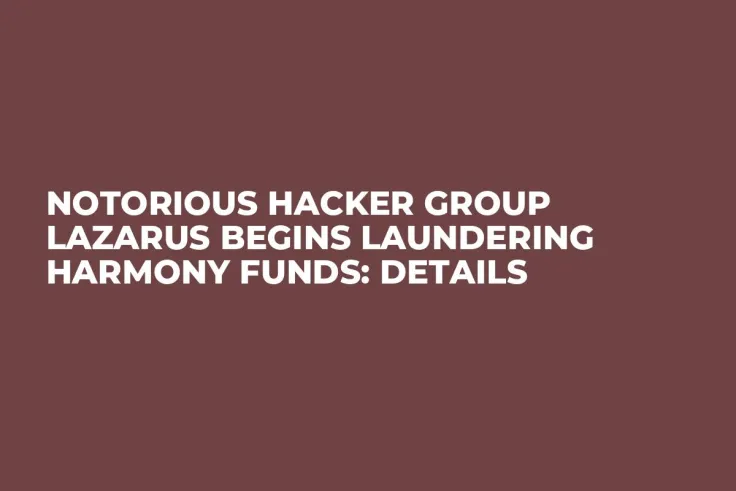
Disclaimer: The opinions expressed by our writers are their own and do not represent the views of U.Today. The financial and market information provided on U.Today is intended for informational purposes only. U.Today is not liable for any financial losses incurred while trading cryptocurrencies. Conduct your own research by contacting financial experts before making any investment decisions. We believe that all content is accurate as of the date of publication, but certain offers mentioned may no longer be available.
With the broader crypto ecosystem reeling itself in with the ongoing positive price trend that has engulfed the industry, the notorious North Korean hacking syndicate, Lazarus Group, is reportedly busy moving funds stolen from the Harmony Bridge last year. Flagged by the on-chain sleuth and self-proclaimed 2D detective ZachXBT, the hacking group resorted to three different exchanges to move their stolen funds.
"North Korea's Lazarus Group had a very busy weekend moving $63.5m (~41000 ETH) from the Harmony bridge hack through Railgun before consolidating funds and depositing on three different exchanges."
The Lazarus Group has a profound reputation in the Ransomware world, and despite the high level of sophistication on crypto and blockchain platforms, they have wreaked havoc in terms of hacks and exploits over the past couple of years. The Lazarus Group was indicted by the United States Treasury Department in the exploit of Axie Infinity's Ronin Bridge last year, which saw over $610 million moved from the gaming protocol.
According to ZachXBT, the looting of the funds stolen from Harmony Bridge is a complicated venture, and the Lazarus Group had to use as many as 350 Ethereum addresses. The ease in creating addresses in the crypto ecosystem comes off as one of the loopholes the regulators have highlighted with respect to providing oversight into the industry.
Lazarus Group and OFAC sanctions
While Lazarus Group has remained very committed to its exploitative and cybercrime activities, some of its dominant addresses have been placed under sanctions by the United States Treasury Department's Office of Foreign Assets Control (OFAC).
The OFAC sanctions on Lazarus Group are being exerted both directly and indirectly through the sanctioning of crypto mixing protocols, including Blender.io and Tornado Cash. Despite the fact that the regulator deemed the sanctions necessary, members of the crypto community reacted negatively to the sanctions on Tornado Cash, noting the inappropriate move to sanction a piece of code based on how it is being used.
 Vladislav Sopov
Vladislav Sopov Dan Burgin
Dan Burgin